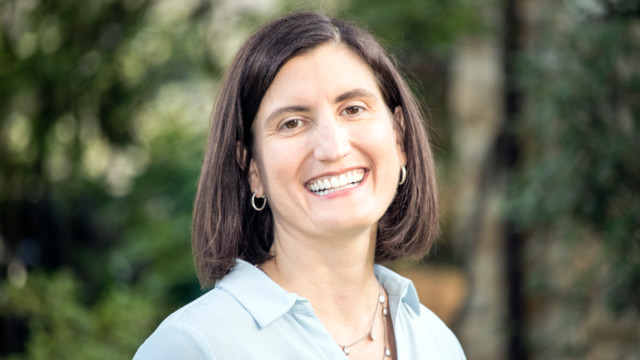Clifton health care executive and former Cincinnati Board of Health member Kate Schroder will take on long-tenured U.S. Rep. Steve Chabot in the November general election for his district representing the Western portions of Hamilton County and all of Warren County after winning the Democratic Party's primary election yesterday.
Schroder, the endorsed Democrat in the race, received more than 28,000 votes in Hamilton County and another 7,430 in Warren County, besting primary opponent Mason Air Force veteran Nikki Foster's roughly11,000 votes in Hamilton County and 6,000 votes in Warren County.
Health care has been a main campaign focus for both Schroder, a cancer survivor, and Foster, whose son experienced serious health problems as a newborn. Both said they supported expanding public options for health care insurance without eliminating private insurance options. In addition, both also supported expanded post-K-12 educational opportunities, including tuition-free two-year college and trade school education.
While similar on most policy issues, Schroder and Foster parted ways on their political style.
Last year, Foster was an early voice calling for Congress to get moving on impeachment proceedings against President Donald Trump.
"When there is evidence that the president committed crimes, we must begin impeachment proceedings to uncover the truth, because no one is above the law," Foster tweeted last July.
Just a week into the race, it was already the second time Foster's bid had drawn attention. The first came after the National Republican Congressional Committee, which raises funds for Republican candidates, called Foster a "socialist loser" in a statement. The epithet — an odd fit for the generally pro-military moderate Democrat — drew rebuke from some political watchers.
Schroder took a more cautious approach to the impeachment question, last summer saying the House should keep investigating Trump but stopping short of calling for impeachment at the time.
Democrats in the U.S. House of Representatives did end up bringing articles of impeachment against Trump, but the Senate voted not to convict the president late last year.
In addition to the Hamilton County Democratic Party's endorsement in the race, Schroder also got endorsements from Cincinnati Mayor John Cranley, State Rep. Brigid Kelly, former Cincinnati Mayor Mark Mallory and other local elected officials.
Foster had support from some in the party, however, including former gubernatorial primary candidate and state representative Connie Pillich, who served as her campaign chair. Foster also netted endorsements from the group Organized Progressives Standing United, Southwest Ohio Regional Transit Authority Board member and Butler County state senate candidate Kathy Wyenandt, Deerfield Township Board of Trustees member Kristin Malhotra and former president of the Democratic Women's Club of Southwest Ohio Sheridan Lijoi.
Toppling Chabot will be a challenge. He has held his seat for 25 years, and minus election in 2008 when he was defeated by Democrat Steve Driehaus, he's never lost a campaign in the district. But he could be hobbled by questions around more than $100,000 missing from his campaign funds and revelations that the man listed as his campaign's treasurer — James Schwartz — says he had no role with the campaign. A federal investigation has been mounted into that missing money. Chabot's campaign says it has been the victim of a financial crime.
Despite the controversy, Chabot has filed for reelection. If Schroder doesn't prevail this time, taking Chabot's seat may get easier for Democrats after the 2020 Census, when the district will be redrawn.
Ohio's primary election was originally supposed to wrap up with in-person voting March 17, but a last-minute order by Gov. Mike DeWine and the Ohio Department of Health closing polls amid concerns about the COVID-19 pandemic resulted in an extension of absentee voting until April 28.






